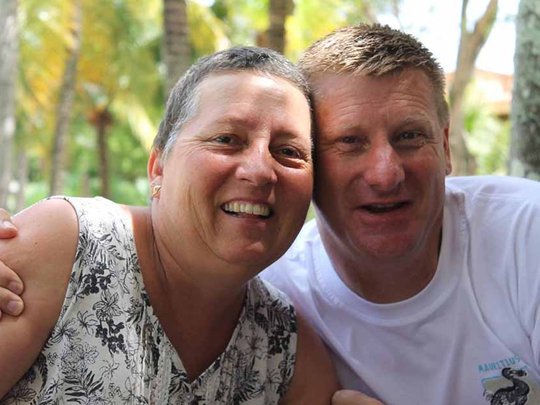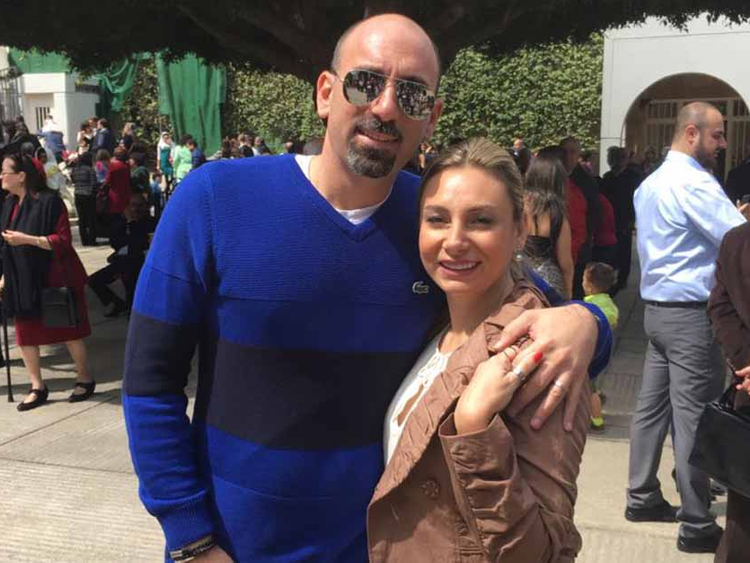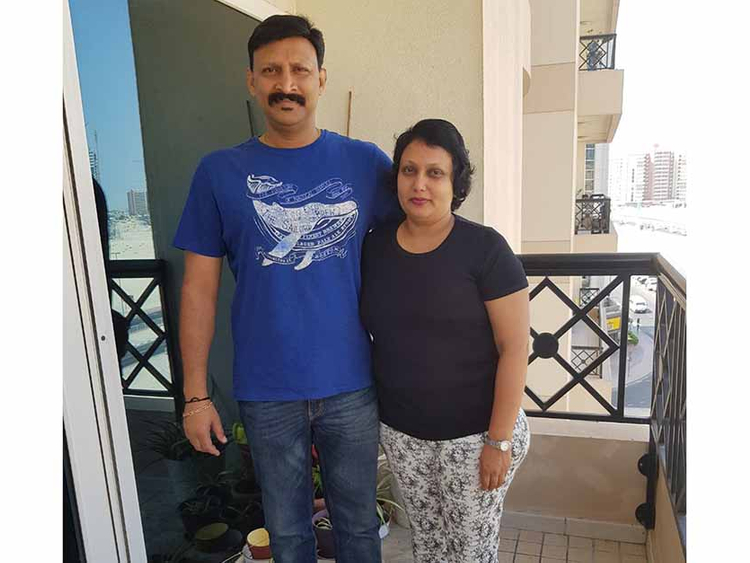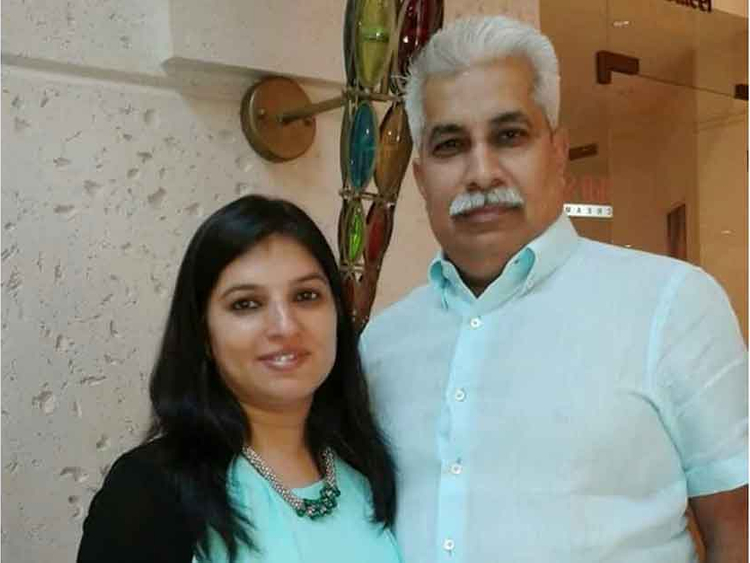
Face your fears
When Lebanese expat Serge Bekhaazi, 39, heard his wife Nadine had breast cancer, in 2015, his initial reaction was one of extreme fear. He says those early days were very difficult, filled with confusion and questions.
"What do we do next? How would her life be in the next six months?", says the construction executive. "We learned about this at a time when I was making a major career move to a new company and in a new industry. We were also moving house. Everything seemed impossible to manage and I felt life was choking me."
Once the news settled in, he realised he had to support his wife, whose cancer was in the first stage. "I let her take the decision on the procedure options and provided advice if she asked for it. Otherwise, I would simply agree with her choices," he says. "I wanted to be her backbone and her shoulder to cry on. I learned that being with your partner physically is worth everything."
After a full mastectomy, Nadine has been on hormone pills for almost two and a half years. She gets tested every six months.
Remember the love
Warren Manuel, 46, found out his wife Ciske had stage 2 breast cancer in May 2015. The Abu Dhabi resident says it’s best to approach the situation systematically. Ciske’s treatment lasted about a year, and they took it one day at a time. "As a husband, all I could do was to be there and try to understand what she was going through," says the South African pilot. "It pained me to see her losing a part of her body," he says. "But just remember that is not why you married her."
He emphasises the importance of open communication with children so they understand the situation and aren’t scared. "Tell them what’s happening to mummy, let them ask questions, and answer as best you can."
Although Ciske’s chemotherapy and radiation sessions are over, she will be on medication for ten years, and needs blood tests every six months.
Get medical advice
Pradeep Parmar, 53, husband to Jyotika, says meeting the doctor privately helped him resolve his doubts. The Indian businessman commuted between Dubai and Mumbai, where Jyotika was being treated after she was diagnosed in the third stage of the disease in 2010. "It is important to keep calm. My children were in Dubai, I played the role of both parents so that they did not miss their mother," he says.
"I also spent several nights in hospital with my wife, made her laugh when she felt low. The experience made me more caring towards her," he adds.
After a mastectomy followed by chemotherapy, radiation and Herceptin, Jyotika is cancer free.
Offer moral support
Dubai-based sales and operations supervisor Ajith Achaiah, 46, had a negative perception of cancer since losing his father to it in 2015.
"When I heard about my wife Deena being diagnosed with breast cancer in May 2016, I thought I would lose her too. However, my wife was very positive and was willing to fight against the disease. This gave me hope and changed my perception."
It is essential to be positive, giving your partner lots of love and support to help her come out of the ordeal successfully,
he says.
"We must also learn to expect the unexpected. I had to take her role in the family, in taking care of the kids. I accompanied her to all the chemotherapy sessions and provided her with the moral support she required," he adds.
Deena, who was close to stage 3, finished her chemotherapy before Christmas last year and the radiation sessions in February. She is now on medication for the next five years.















